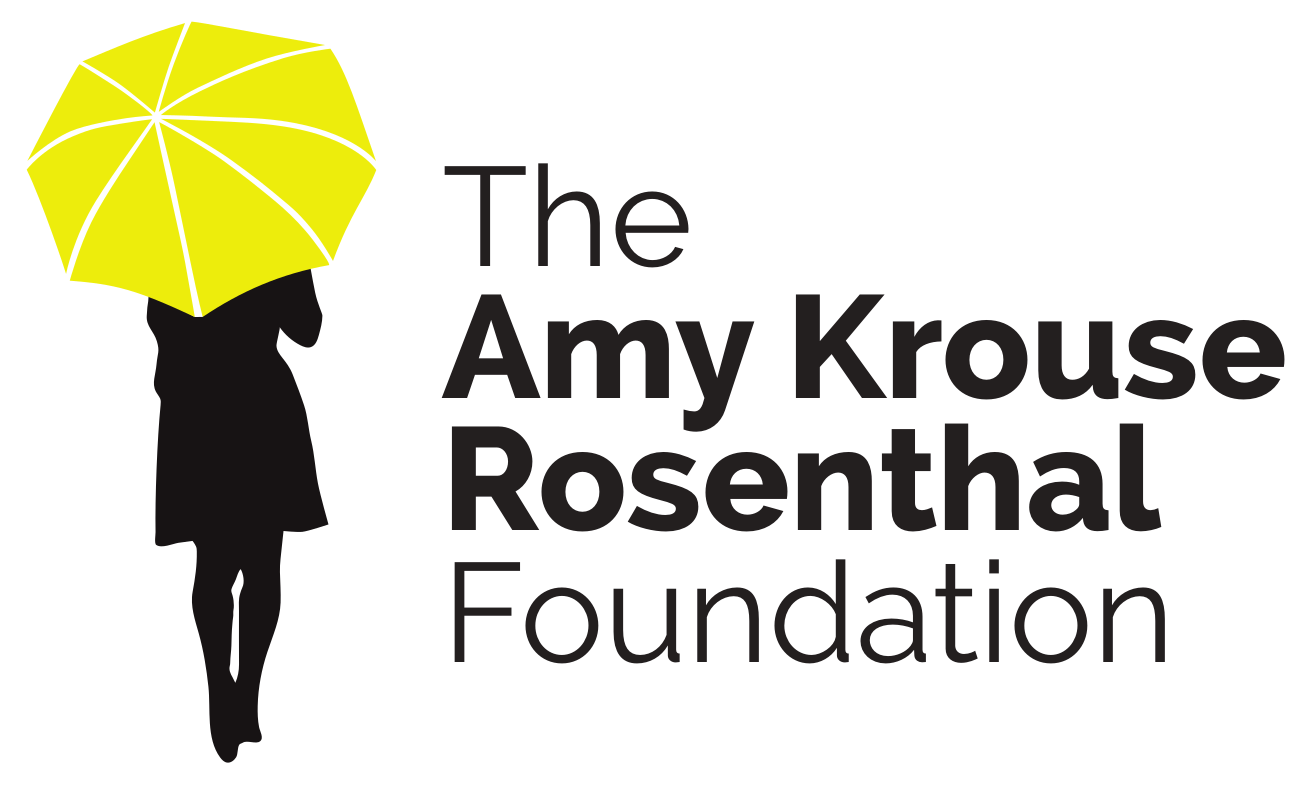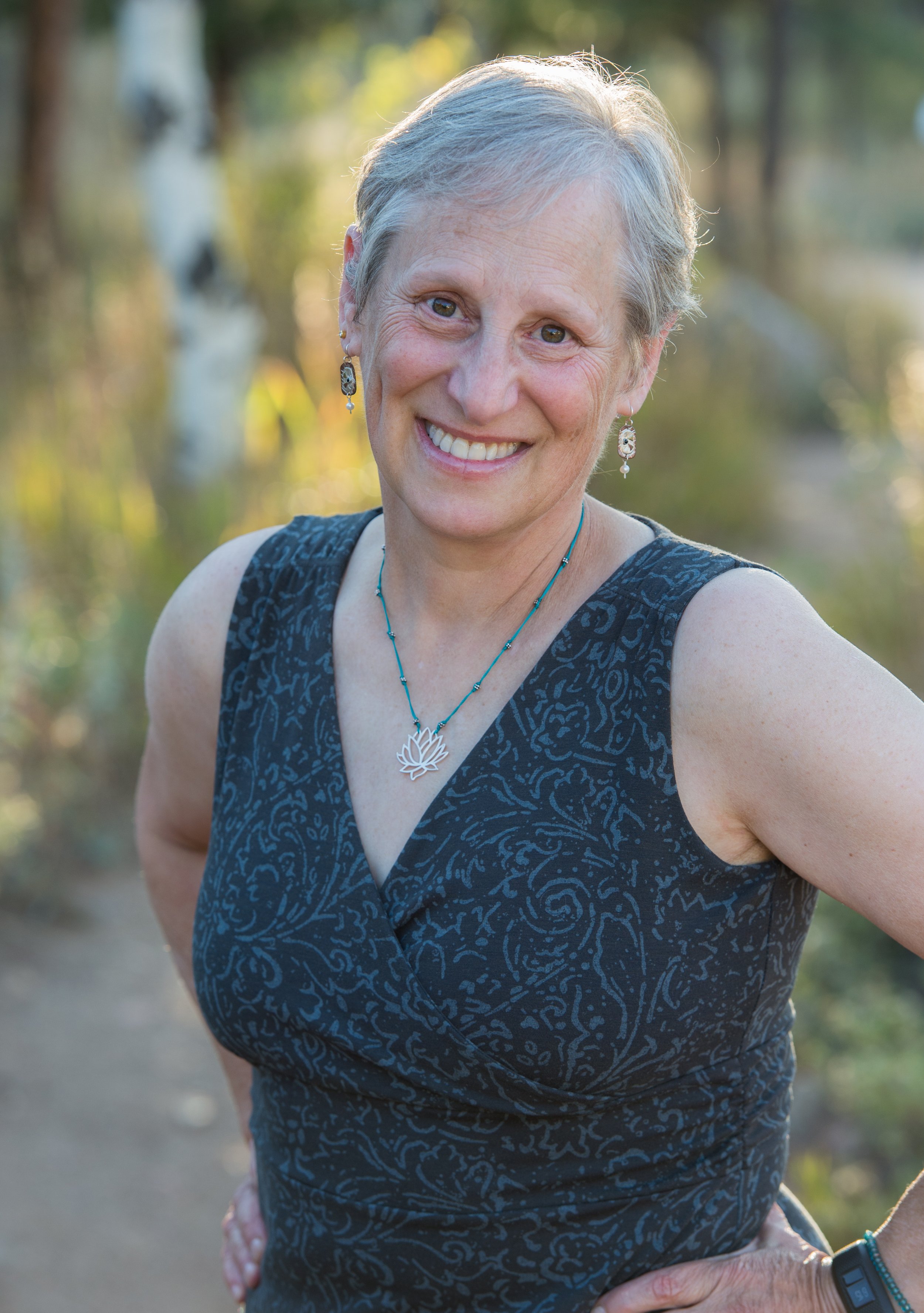Deborah Binder
“In May 2009, around my 50th birthday, I went to see my primary care physician for a routine annual physical exam. I told her that I thought I was starting menopause because I had irregular and heavier periods and I was gaining weight (without any change in my diet or exercise routine.) She thought that I was going into menopause, and she did a typical annual physical exam including a pelvic exam. She did not notice anything abnormal about my ovaries or uterus when doing the pelvic exam, but she decided to send me for a vaginal ultrasound anyway (which is very unusual for a primary care physician to do.) The ultrasound revealed that both my ovaries were enlarged to the size of grapefruits and that I had complex cysts. My physician sent me to see my gynecologist for further follow up.
My gynecologist advised me to have a complete hysterectomy as soon as possible and she had a CA-125 blood test done. It came back at 76—normal is anything under 30. She believed that I had ovarian cysts but did not suspect cancer. She told me she would have a general surgeon assist her with the operation. A family friend, an OB-GYN, reviewed my test results and urged me to get a second opinion with a gynecological oncologist—a specialty that I did not know existed. She said she wouldn’t even do this surgery and that by having a gyn-onc do it my outcome would be at least 33% better. Fortunately, I was able to see this specialist before my already scheduled surgery. She immediately agreed to take my case and scheduled surgery for the following week. This doctor confirmed that I had complex ovarian cysts but said that she could not determine if there was any malignancy until my surgery. Urging patients to see gynecological oncologists is one of the most important things that can be done to save women’s lives.
During surgery it was discovered that I had High Grade Ovarian Cancer Stage IIc, which means that I had some ascites in my abdomen and cancerous cells were found on my fallopian tubes. I was completely debulked in the pelvic area (ovaries, fallopian tubes, cervix, omentum, and uterus are removed and the entire abdominal cavity and organs are washed to remove cancerous cells). Three weeks after surgery I started a chemotherapy regime of Taxol and Carboplatin. I had treatment all day every for three weeks. It was hard on my body—I became anemic, had to have blood transfusions and experienced a level of fatigue that I never knew existed. I saw an acupuncturist on a regular basis throughout chemotherapy to help with these problems.
My CT scans have been clear and my CA-125 remains normal at 8-12. Halfway through chemo I had genetic counseling and decided to take the BRCA1 gene mutation test. I tested positive—most likely because of my Eastern European Ashkenazi Jewish heritage. There is a history of breast cancer, pancreatic cancer, colon cancer and brain cancer in my family. My older brother died from a Glioblastoma and while I am the first in my family to test for the BRCA1 gene mutation, I am sure that he had it as well. They are finding links to the gene mutation in other cancers now. As a result of my BRCA1 status which gives me a 50-70% chance of getting breast cancer, I decided to have a prophylactic mastectomy and breast reconstruction. That surgery took place in December 2010.
I have become an advocate for Ovarian Cancer patients and survivors. I participate in clinical trials for OVCA survivors. I teach yoga and mindfulness practices at yoga retreats for cancer survivors. I have participated in OCRA’s Survivors Teaching Students program at the University of Washington Medical Center. I am a peer mentor for Immerman’s Angels and Sharsheret—helping other women navigate their OVCA journey. I serve as a Survivor Ambassador for the Clearity Foundation, and as a peer reviewer for the Department of Defense’s Ovarian Cancer Research Program. I will be attending the 2023 Annual Meeting of American Association for Cancer Research as part of the AACR Scientist↔Survivor Program and as a representative of the Powell-Drescher Ovarian Cancer Research Foundation. I want to utilize my survivorship in a way that will have an impact on discovering effective tests for early diagnosis and treatment of Ovarian Cancer.
Here is a video that I created to help bring awareness to the importance of genetic testing:
I celebrate my 14 year “cancerversary” in July, 2023. I hope one day that a cure is found for Ovarian Cancer. Right now I am “dancing with NED” and every day I learn to live with my “new normal.””

